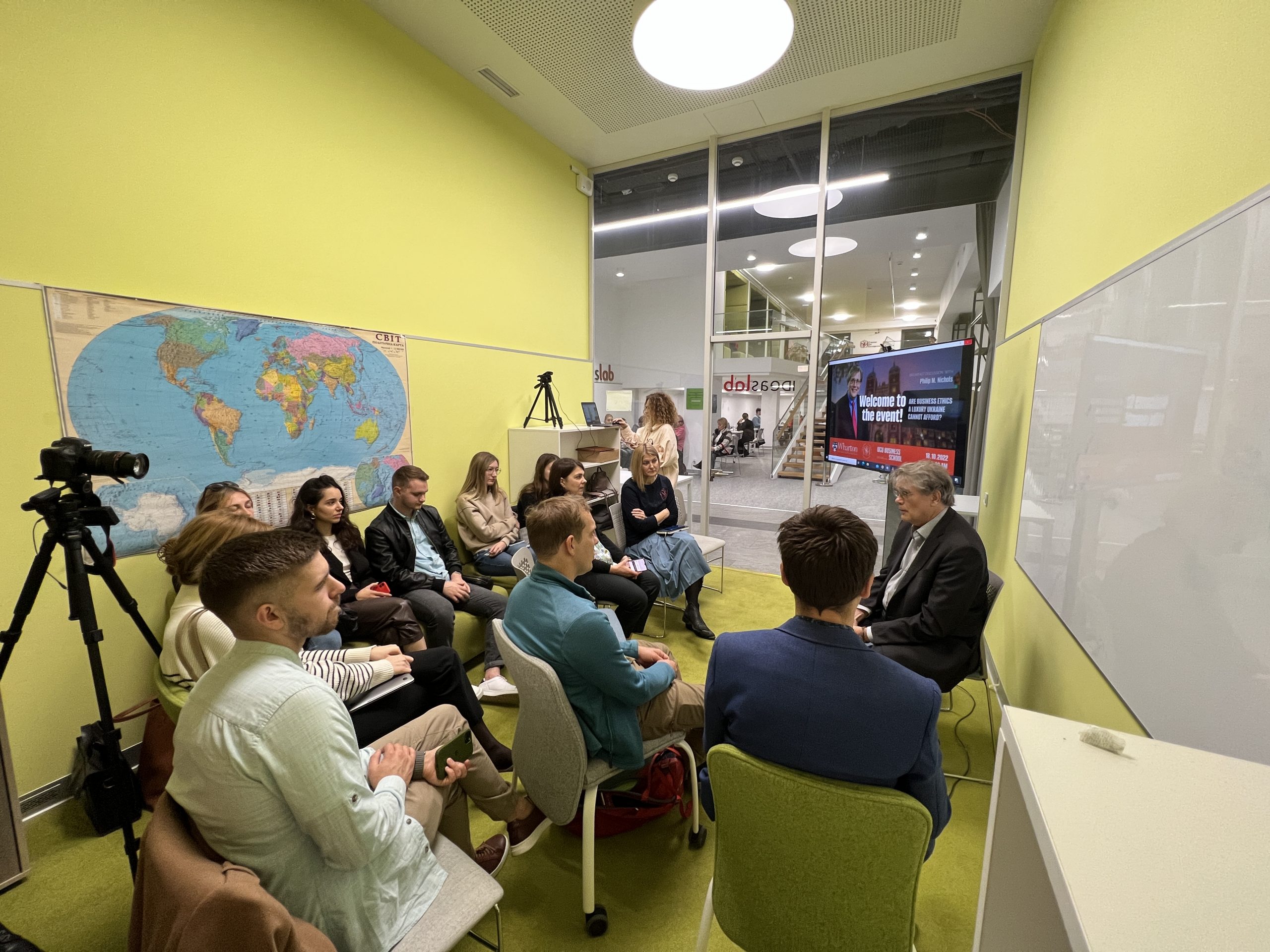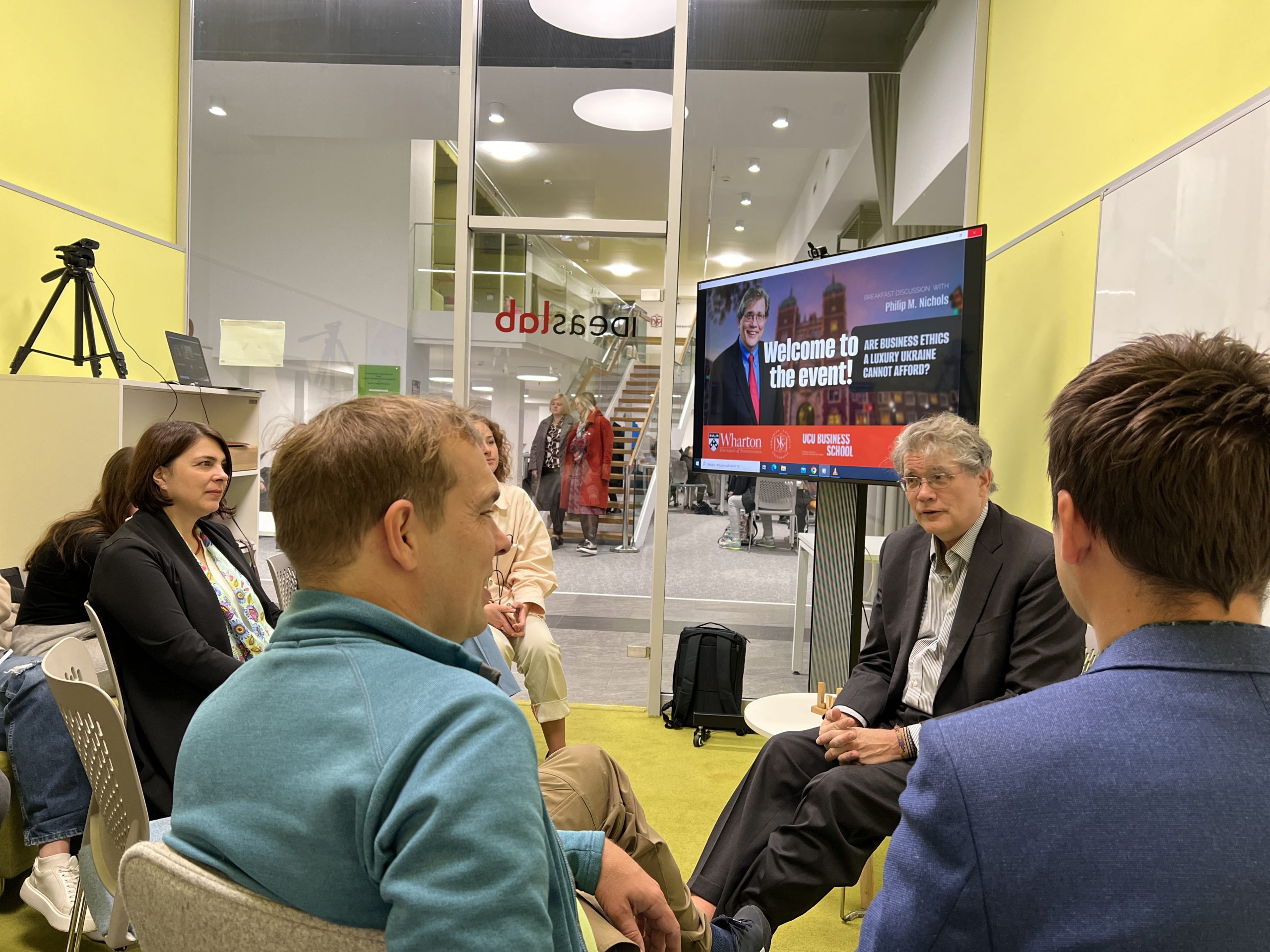Philip M. Nichols, Professor of Legal Studies & Business Ethics at The Wharton School of the University of Pennsylvania, visited our campus to discuss the theme «Are Business Ethics a Luxury Ukraine Cannot Afford?». During the lecture, there was an air alarm in Ukraine. As a result, it was held at the shelter of the UCU Business School. Students from the UCU Business School, alumni, and team members attended the seminar: everyone could discuss the theme, have breakfast with the professor, and ask questions. Scroll down and read some key takeaways from the lecture!

Payment giants Visa, Mastercard, and PayPal have ceased operating in the Russian market. Fashion retailer H&M has suspended sales and food and drink companies such as McDonald’s, Coca-Cola, Starbucks, and Heineken have halted business. And all the big four accounting companies – Deloitte, KPMG, EY, and PwC – have said they will no longer have a member firm in Russia. Every day, more organisations are following suit and can no longer ignore the growing demand to cut ties with Russia.
What will happen to those who don’t? Companies who have not yet cut ties with Russia are facing a backlash which could include damage to their reputations and even potential boycotts from customers, investors, and other stakeholders. This growing pressure is indicative of how strong people’s attitudes are to companies’ ethical practices. Cynics often suggest that «business» and «ethics» do not go together. After the war, Ukraine will need to rebuild many sectors quite rapidly. It may be tempting to focus on «business» and hope that «ethics» will come later. Basic ethical conduct, however, is fundamental to rebuilding a cooperative and trusting economy that offers opportunities for the greatest number of people. Business ethics does not have to hinder or slow down business activity and can significantly enhance it.

You are unique because you are business people, so your experience and reputation help to generalize trust, and I’m going to express some generalizations now, not to minimize what is going on right now.
We know that, even during the war, Ukraine chose to make much distributions and manufacturing consumption decisions through business. Or perhaps, because of the time of war, we know that business can be done significantly more successfully if there is widespread trust that the reasons for which we wish to utilize business will be better if there is widespread trust.
The public have a long memory, and those companies that take too long, or fail to act, may face long-term reputational damage, and even deeper than that, could be seen as contributing to the war and making profits from the proceeds of war crimes.
Businesses are facing the ultimate test in corporate social responsibility and most leaders agree that they have an ethical responsibility to cut ties with Russia and prove to their customers that their moral principles are not just lip service. Now is the time for leaders to really walk the walk and show the world that they are not just claiming to be socially ethical but are willing to put concrete steps in place to stand by their beliefs.
After the war ends in Ukraine, there will be a massive amount of work to be done rebuilding the country’s infrastructure. During the reconstruction stage, there is a large opening of relationships with the rest of Europe’s business climate, and a lot of money is required.




The full discussion can be followed by the link:




















